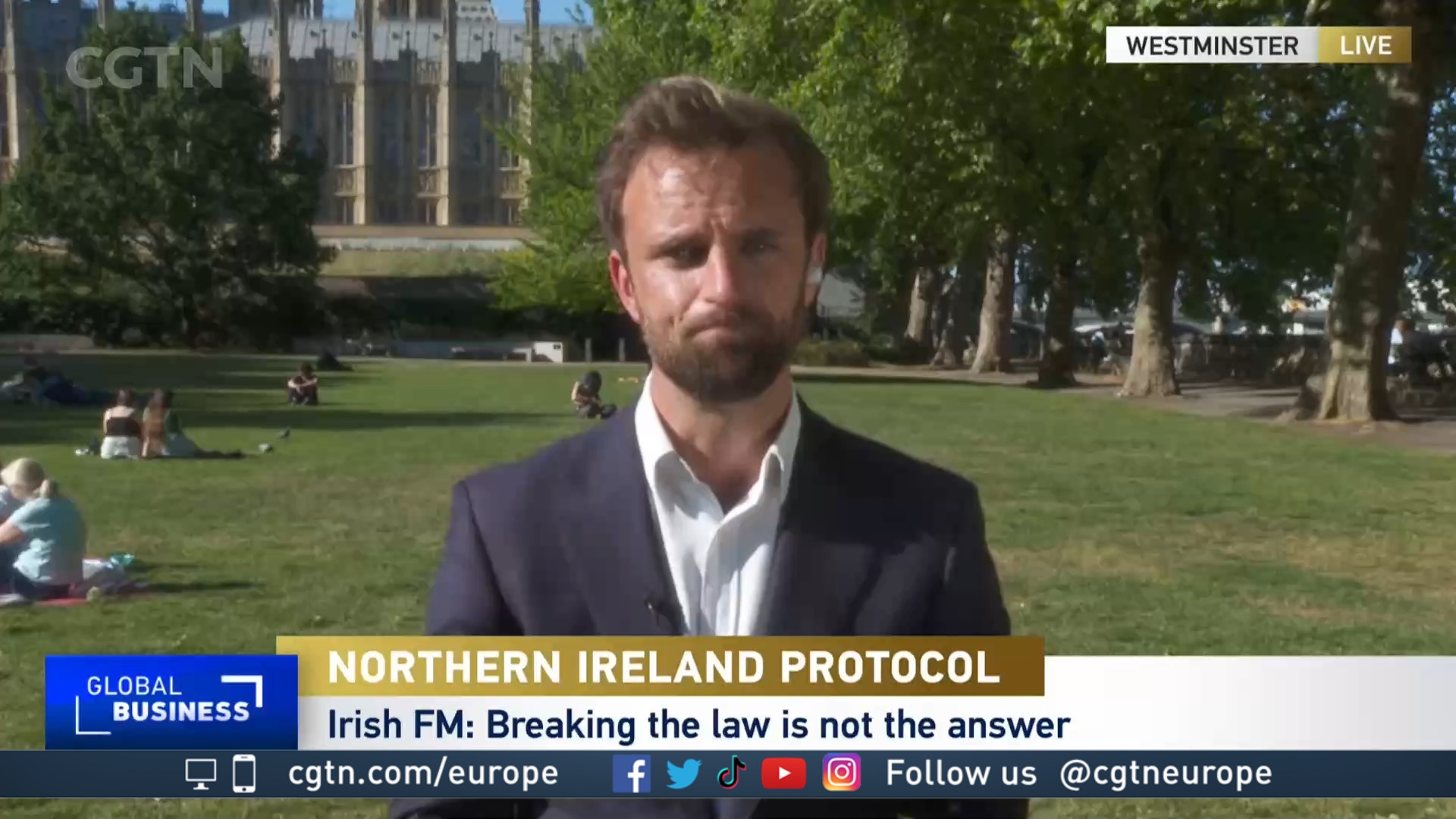03:03

The same UK government that brokered the Brexit deal with the European Union now wants changes to the most controversial part of it: the Northern Ireland Protocol.
The protocol is the part that maintains an open border between Ireland, which is a member of the EU, and Northern Ireland - part of the UK – in order to uphold the Good Friday Peace Agreement that brought an end to decades of sectarian violence in 1998.
In order to ensure goods going in and out of the EU's single market could still undergo checks, the protocol instead created a customs border between Northern Ireland and mainland Great Britain.
UK Foreign Minister Liz Truss on Tuesday confirmed to parliament that the government would introduce proposed legislation "within the coming weeks" that would unilaterally override the protocol.
That will not mean removing the border entirely. But Truss said it will propose creating 'green channels' for the free flow of goods only due to travel as far as Northern Ireland. Checks would remain in place for those going on into the rest of the EU, and there would be stiff fines for rule flouters.

Britain's Foreign Secretary Liz Truss speaking to MPs during a statement on the Northern Ireland Protocol, at the House of Commons, in London. /Jessica Taylor/UK Parliament/AFP
Britain's Foreign Secretary Liz Truss speaking to MPs during a statement on the Northern Ireland Protocol, at the House of Commons, in London. /Jessica Taylor/UK Parliament/AFP
"Our preference remains a negotiated solution with the EU and in parallel with the legislation being introduced," said Truss. "We remain open to further talks if we can achieve the same outcome through negotiated settlement."
That is a tactic British negotiators have used with Brussels before in this whole Brexit saga: "Let's negotiate," they say. "But if you do not give us what we want, here is what will happen."
In the past, they have not tended to follow through on those threats. But Truss's statement was clearly designed to convince her audience that this time, she is deadly serious. In Belfast, the response will be as polarized as the current state of politics there.
The Democratic Unionist Party (DUP) had already said it wanted the customs border scrapped entirely or it would block the formation of a regional power-sharing government with Sinn Fein, the nationalist party that came out on top for the first time in regional elections earlier this month.
That is what has brought this issue to a head now.
Speaking in Westminster shortly after Truss, DUP leader Jeffrey Donaldson called the move a good start but gave no indication of whether it might be enough for his party to at least begin serious negotiations to break the political deadlock. In the meantime, the DUP continues to lead a caretaker government with only limited powers.

A lorry passes an anti 'Northern Ireland Protocol' sign as it is driven away from Larne port, north of Belfast in Northern Ireland. /Paul Faith/AFP
A lorry passes an anti 'Northern Ireland Protocol' sign as it is driven away from Larne port, north of Belfast in Northern Ireland. /Paul Faith/AFP
Sinn Fein has already made its opposition to these proposed unilateral actions very clear. Party President Mary Lou McDonald came out of a meeting with Boris Johnson on Monday evening in Belfast accusing the prime minister of orchestrating this crisis to try and force Brussels to compromise.
Both parties say they want devolved government to start functioning again as soon as possible in order to maintain peace and stability in Northern Ireland. But they disagree in some quite fundamental ways about the best way to ensure that happens.

